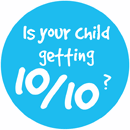
If you or your family aren't getting anyone of the type 1 essentials, the first thing to do is to talk about the issue.
If you're a young person, you may feel ready to talk to your healthcare professional or service provider on your own, but you should speak to your parents or carer first of all, and keep them involved so they can support you along the way.
Speak to the people or service involved. If it’s a healthcare issue, talk to your doctor or nurse. If it’s a school issue, talk to the teacher, the head of year, the head teacher or the special educational needs co-ordinator. If it’s a social activity, like a sports or youth club, talk to the organiser or leader. Ask them for a meeting and take a copy of the type 1 essentials along with you to help get your point across.
If you’re unable to reach a satisfactory result, the next step is to make a complaint.
Health Services
Contact your hospital and ask them to talk you through their complaints procedure. You should follow the procedure and keep a record of any

correspondence. If you are unable to complain yourself, ask a relative or friend to help.
If the problem isn’t resolved through the hospital’s complaints procedure, there are organisations that can provide you with information and advice about how to complain formally.
Translation services and interpreters can be provided for the complaints process if necessary.
There are different complaints procedures in England, Scotland, Wales and Northern Ireland.
School

If discussions with the school do not solve the problem, you should ask about its formal complaints procedure. The procedure might involve explaining your concerns to the school’s board of governors or the local authority.
Take your case to the relevant tribunal or appeals body if the problem has still not been solved. You should also ask your local authorities if they offer mediation services for disability discrimination disputes. Mediation services may provide you with a less expensive alternative to the tribunals.
For more information, see our advocacy pack on education and diabetes.
Social life
If you’re not happy with how you or your child is being treated at a sports or youth club or similar, the first thing to do is to informally explain to the club why you think you have not been treated fairly.
![]()
If an informal discussion does not solve the problem, you may wish to make a formal complaint using the organisation’s complaints procedure, if it has one, or by putting your complaint in writing.
If these steps do not work, you have two options. You can either try to address the problem through an alternative dispute resolution service or take a discrimination claim to a court.
For more information, see our advocacy pack on service providers and diabetes.
